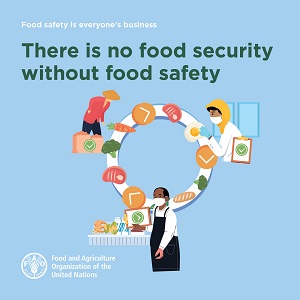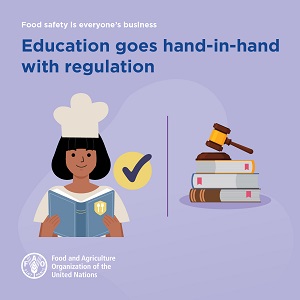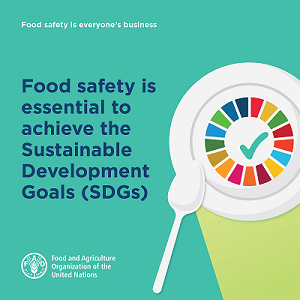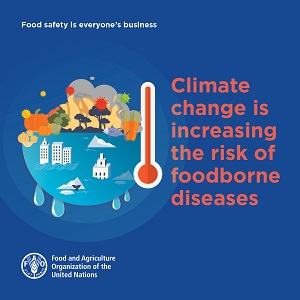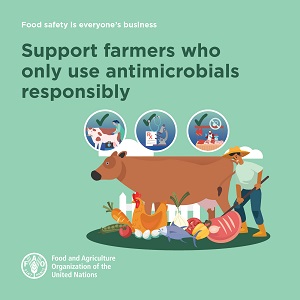Q&A on food safety
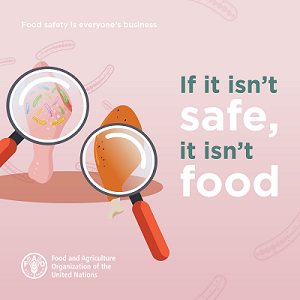
What is food safety?
Food safety is a science-based discipline, process or action that prevents food from containing substances that could harm a person’s health. Food safety aims to have food that is safe to eat.
Why is food safety important?
Food is the third most basic human need, after air and water. Only when food is safe can it contribute to our food security and health. When food is not safe, people cannot thrive, hunger and poverty cannot be alleviated, and a healthy life is not possible. If it isn't safe, it isn't food.
Who ensures our food is safe?
Everyone who produces, processes, transports, stores, prepares, serves, and consumes food needs to use practices that keep foods safe. Governments play a key role in developing legislation, implementing policies, conducting inspections, enforcing regulations, educating and communicating with the public, as well as responding to food safety incidents and emergencies when they happen. As the slogan of World Food Safety Day goes, “Food safety is everyone's business”.
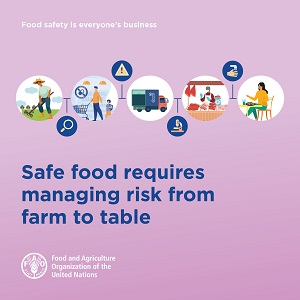
How does food become unsafe?
Food can become unsafe at any point in the supply chain. Contaminants may enter food commodities from the soil, water, air or equipment used during production and processing. Storing food improperly, unhygienic handling of food and transporting it at the wrong temperature can make it unsafe to eat. The consumer can also make food unsafe by not cooking it thoroughly, for example.
How does food safety help achieve the Sustainable Development Goals?
The Sustainable Development Goals (SDGs) call for everyone, in particular the poor and vulnerable, to have access to safe, nutritious, and sufficient food all year round. Food safety is a fundamental part of food security (SDG2) and contributes to human health (SDG3). Food safety also contributes to economy-related and other Goals.

Is food safety part of “One Health”?
Yes. One Health is an integrated approach for preventing and mitigating health threats at the animal-human-plant-environment interfaces. Food safety has a significant impact on human health, and food, which is essential for human survival, comes from plants and animals. Food safety is a core tenet of One Health.
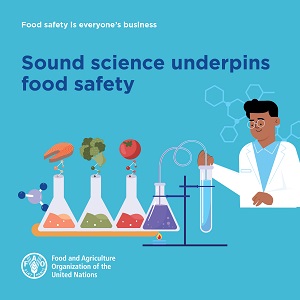
How is science used in food safety?
Studies in microbiology, toxicology, chemistry, epidemiology, biology, genetics and many other scientific disciplines provide evidence of food safety hazards and their risks, and help select ways (policies, standards, practices) to manage them.
Does climate change affect the safety of our food?
Yes. Climate change is increasing the risk of consumer exposure to foodborne hazards, whether from land or sea. The changes in climate have a direct impact on biological (pathogens and parasites) and chemical (heavy metals, pesticides, mycotoxins and algal biotoxins) hazards by changing their occurrence, distribution or virulence. (See Climate Change: Unpacking the burden on food safety for more)
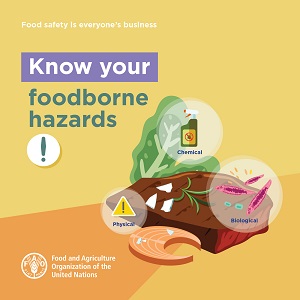
What is meant by a risk-based approach to food safety?
It is impossible for every food item on the market to be inspected and tested for all possible hazards. What is feasible is to apply science to prioritize and anticipate food safety hazards and rely on preventative measures and controls at different processing points and stages along the food chain to reduce the likelihood of food safety problems and their negative consequences.
Is antimicrobial resistance a food safety issue?
Yes. Many of the bacteria that contaminate our food are now resistant to antimicrobials, making foodborne diseases more difficult to treat. Using antimicrobials wisely in the production of meats, seafood, eggs and milk as well as fruits and vegetables can reduce the risk of antimicrobial resistant bacteria in food.

